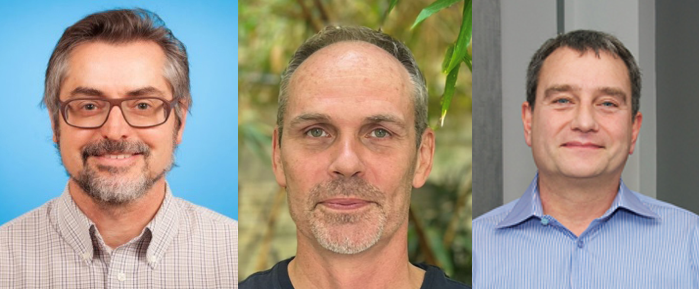Main Second Level Navigation
- Welcome
- Why Toronto?
- History of the Department
- Vision & Strategic Priorities
- Our Leadership
- Our Support Staff
- Location & Contact
- Departmental Committees
- Department of Medicine Prizes & Awards
- Department of Medicine Resident Awards
- Department of Medicine: Self-Study Report (2013 - 2018)
- Department of Medicine: Self-Study Report (2018 - 2023)
- Communication Resources
- News
- Events
COVID-19 vaccines in older people with HIV lead to robust immunity, find U of T researchers

Older individuals and people with HIV were prioritized for COVID-19 vaccination, yet comprehensive studies of these vaccines’ ability to provoke an immune response and their effects on HIV reservoirs are not available.
A new study by a team of U of T researchers has found that for older people with HIV, three vaccine doses led to a robust immune response. The study was published in iScience on October 20, 2023 and involved 13 researchers from the University of Toronto, including Drs. Mario Ostrowski, Rupert Kaul and Colin Kovacs from the Department of Medicine.
This study looked at how well COVID-19 vaccines work in two groups of people: individuals aged 55 and older with HIV (PWH) and HIV-negative people in that age range. The researchers recruited 91 participants, including 68 PWH and 23 older HIV-negative individuals, and results were measured over 48 weeks.
The research team found that people with HIV demonstrated suboptimal immunity after two COVID-19 vaccine doses compared to their HIV-negative counterparts. However, administering three doses of the vaccine to both groups led to equal and robust immune responses, highlighting the importance of the third dose for comprehensive protection.
Researchers also found that COVID-19 vaccinations did not change the amount of HIV in most people, but in some individuals with lower detectable levels of the virus in their blood while on therapy, there was an increase in HIV reservoirs after vaccination. This suggests that people with higher levels of HIV in their body should be carefully monitored for any negative effects related to the virus.
“These results underscore the significance of a three-dose COVID-19 vaccination regiment for optimal protection among older people with HIV,” says Dr. Ostrowski. “It also highlights the need for vigilant monitoring of people with higher HIV levels during vaccination.”
This study was funded by the Ontario HIV Treatment Network, the Canadian HIV Trials Network, the Public Health Agency of Canada, COVID-19 Immunology Task Force and the Juan and Stefania Speck fund.

